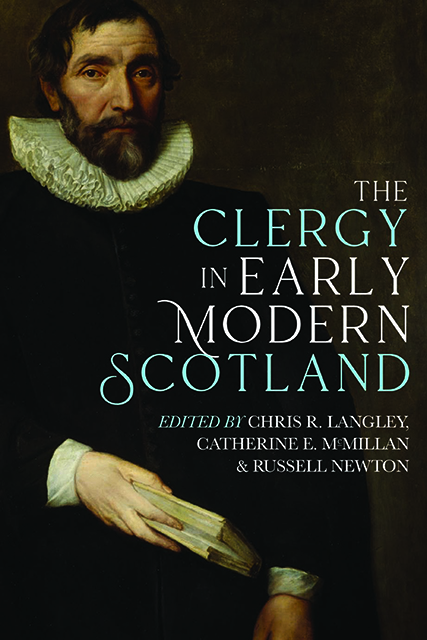11 - ‘Wings of the Soul’: Moderating Emotion in the Preaching of Hugh Binning (1627–53)
Published online by Cambridge University Press: 14 January 2023
Summary
Reformed Protestantism in seventeenth-century Scotland was intensely emotional. At least, that is the picture painted by recent historiography on the subject. In pioneering this interpretation, Louise Yeoman powerfully and persuasively argued that the heart of Scottish spirituality was the experience of conversion, consisting in the acquisition of a felt knowledge of doctrine (‘heart-work’) experienced through both private and public devotional practices. Her position has been supported by David Mullan, who identified conversion as the focal point of Scottish Reformed Protestant piety, and Michelle Brock, who has convincingly critiqued Scottish religiosity for cultivating a culture of negative emotionality that was associated with the demonic. In attempting to assess the attitudes and experiences that Reformed Scots had to emotion, these scholars, and others, have outlined the ‘emotional community’ of Scottish Protestantism. Doing this, they are challenging a narrative, significant in contemporary popular culture and supported by an older historiographical tradition, that understands Scottish Reformed piety to be unfeeling, arid, and dry.
Scholarly re-assessments of the role of emotion in early modern Reformed Protestantism are not isolated to a Scottish context. There have been similar reappraisals of English and North American mainstream Protestant theology and piety, heralded by the research of scholars such as Peter Lake and Charles Hambrick-Stowe. Building on the foundations laid by Lake and others, there has been significant research that considers how and why sixteenth- and seventeenth-century Protestants, including clerics, understood and experienced their emotions and thought about the feelings of others. Through this research, a convincing critique of the long-standing interpretations of Max Weber and nineteenth-century critics of Reformed Protestantism, who believed that this kind of Christianity prioritised rationality over and against the emotions, has emerged. Stereotypes have been replaced, at least in academic discourse, with more generous treatments of Protestant piety tending to emphasise how the tradition cultivated, rather than neglected, feeling. Consequently, the idea that early modern Protestant piety in Scotland had a significant emotional dimension is now well established, and the scholarship done by Yeoman, Mullan, Brock, and others has contributed to and belongs within an international re-evaluation of feeling’s place within early modern Reformed Protestantism.
- Type
- Chapter
- Information
- The Clergy in Early Modern Scotland , pp. 207 - 224Publisher: Boydell & BrewerPrint publication year: 2021



